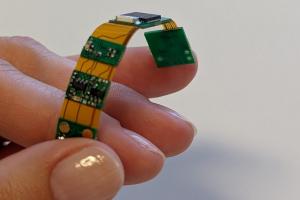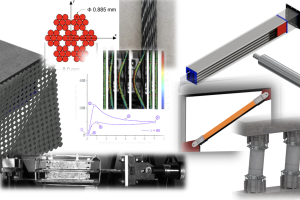Research @ UVA Engineering
Engineering for a Sustainable FutureEngineering a better future will require the best work of researchers collaborating along the spectrum from the tiniest building blocks of materials through the complex workings of entire societal systems. We work at the micro- and nano-scale in fields like heat transfer, catalysis and 2-D materials to identify fundamental properties of matter. Our goal is not simply to conduct research, but to pursue research with positive global impact.
Research Area
Optics, Photonics and Sensing Energy, Transportation and the Environment Materials Engineering & Nanotechnology
Optics, Photonics and Sensing
Clear selection
-

ASSIST Center
The Center for Advanced Self-Powered Systems of Integrated Sensors and Technologies (ASSIST) is an NSF-funded Engineering Research Center established in 2012. ASSIST focuses on creating self-powered sensing, computing, and communication systems to enable data-driven insights for a smart and healthy world. -
High-Performance Low-Power Lab
The High-Performance Low-Power (HPLP) Laboratory is dedicated to research in the areas of Artificial Intelligence (AI) hardware and edge IoT. Ongoing research spans a wide range of topics, from Processing-in-Memory (PiM), low-power hardware accelerator design, and Smart Dust, to explorations in spintronics and nanoelectronics. -
Materials Informatics Group
Our group focuses on developing novel informatics approaches to accelerate the search and discovery of new materials.Capabilities- Design space guidance via DFT/ML
- Bayesian learning
- Quantitative structure-property relationships
- Materials Informatics
- Design space guidance via DFT/ML
-

Resilient and Advanced Infrastructure Laboratory
Our group aims to formulate innovations in design, materials and sensing technologies to advance a new generation of infrastructure systems. Led by Professor Osman Ozbulut, RAIL focuses on applying smart technologies and interdisciplinary expertise to the development of resilient and sustainable civil infrastructure systems. -
Virginia Nano-Computing Research Group
Led by Avik Gosh, VINO combines an understanding of fundamental physics, chemistry, material science, and device engineering to explore novel device concepts of nanoscale material structures.